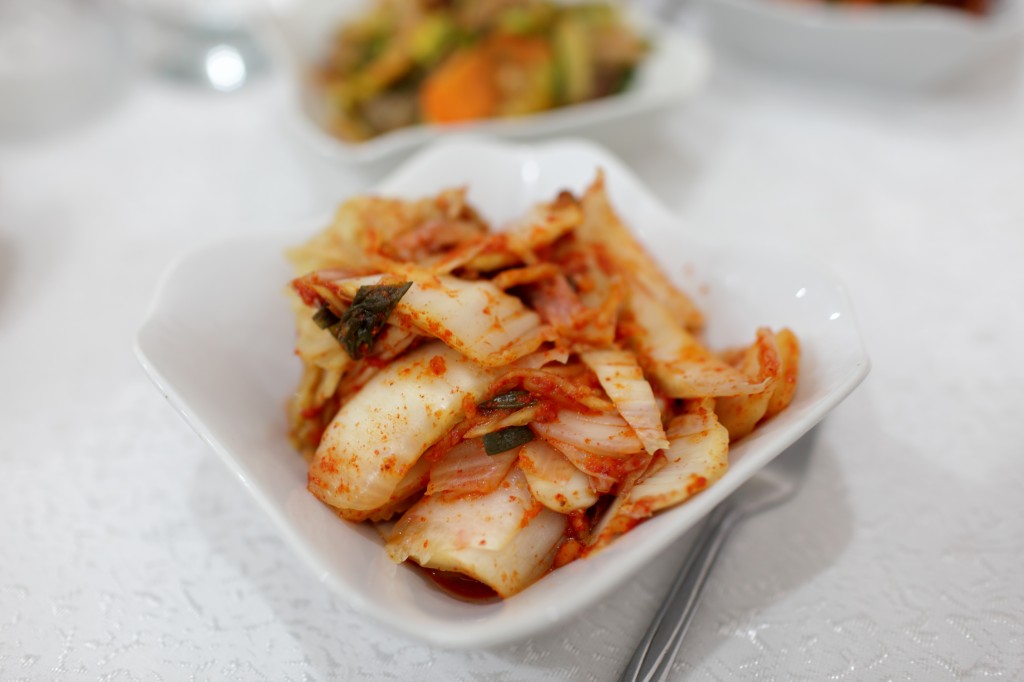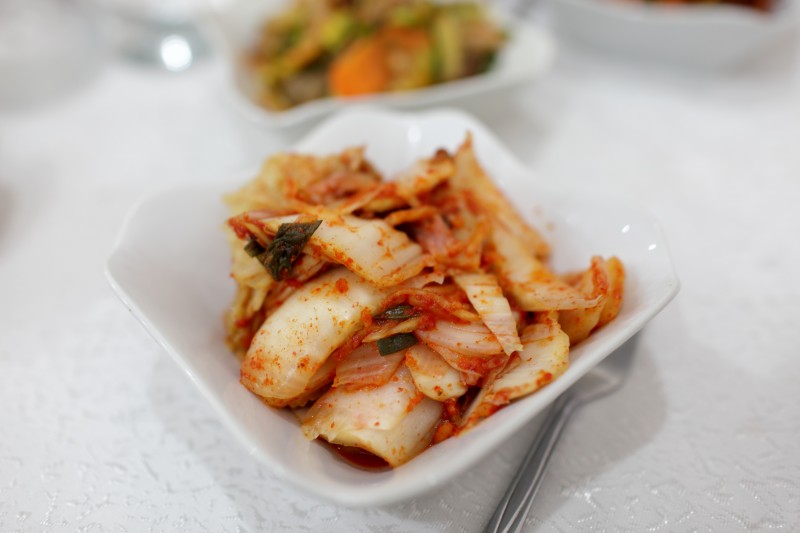 Here’s an idea – a seemingly unpalatable idea – let’s all eat fermented food, on purpose! The very thought defies common nutrition logic that the healthiest foods are usually the freshest. With health and nutrition experts constantly extolling the value of fresh unadulterated food to high heaven, why on earth should we even begin to consider trying out food that is associated with terms such as chemical reaction, micro-organisms and bacteria?
Here’s an idea – a seemingly unpalatable idea – let’s all eat fermented food, on purpose! The very thought defies common nutrition logic that the healthiest foods are usually the freshest. With health and nutrition experts constantly extolling the value of fresh unadulterated food to high heaven, why on earth should we even begin to consider trying out food that is associated with terms such as chemical reaction, micro-organisms and bacteria?
The practice of eating fermented food, however, has been widely observed by wisdom-bearing ancients such as the Romans who ate slow-fermented bread and the Inuit who favored fermented whale, for thousands of years. Modern man often partakes of fermented foods as well, perhaps even without his knowledge.
Leavened bread, wines, yogurt, beer, cider, ketchup, and some cheeses are all fermented.
Just what exactly lies beneath the science of fermentation?
Basically, fermentation is a natural food preservation technique and chemical process which allows bacteria and micro-organisms that are inherently found in certain foods to break down the sugars and starches also contained within the food.
It may simply entail keeping vegetables that are immersed in salt water in airtight jars or introducing starter cultures of bacteria to food. Whatever method is utilized, the end result is an easily-digestible product that is teeming with organisms and enzymes that yield untold benefits to the consumer.
The Real Reasons Why You Should Eat More Fermented Food
While the idea of eating fermented food churns our stomach, the reality is that it is actually very helpful not only to our stomach but to our entire digestive system. Since, as mentioned, fermentation itself comprises the partial digestion and breaking down of food into simpler components even before it is consumed, such a process inevitably results in more efficient digestion. As an example, lactose-intolerant individuals are more likely to eat kefir or yogurt without incident, precisely because the lactose is already broken down in the process of fermenting milk into kefir or yogurt.
It is the action of enzymes and probiotics present in fermented foods that is responsible for supplying our intestines and gut with Lactobacilli and for further contributing to healthy digestion. Replenishing our supply of enzymes is particularly important because as we grow older, our body’s ability to produce enzymes deteriorates, contributing to problems such as viral infections, cardiovascular concerns, diabetes, obesity and depression, to name a few.
Fermented foods happen to be replete with healthy and useful enzymes that augment our body’s supply to enable it to digest and absorb nutrients more efficiently and to make the most of nutrients found in food. Enzymes and probiotics similarly assist in detoxifying the body and in reducing stomach disorders. Moreover, probiotic-rich fermented foods allow us to counteract the ills of consuming an overdose of sugar and refined carbohydrates which our regular diet usually consists of.
Fortifying Our Immune System
It is important to note, in addition, that the digestive system is a major element of our body’s immune system. Therefore, what is beneficial for the digestive system inevitably promotes corresponding improvements on our body’s ability to ward off illness. Research has shown that, with regular consumption of fermented foods, stronger resistance to different illnesses such as the flu and cold, as well as infections, is observed.
Enhancing Mental and Psychological Health
Studies further offer confirmation that probiotics present in fermented foods help minimize stress. With regular consumption of fermented foods, such as sauerkraut (fermented cabbage), benefits for brain health are noted, while depression and anxiety are alleviated. Another type of fermented cabbage, the Korean kimchi, on the other hand, wields wonders on the body by raising energy levels, promoting more effective assimilation of nutrients and enhancing skin appearance. When our body is healthy and is working optimally, our general disposition consequently and significantly improves, and we enjoy the benefits of feeling and looking great as well.
Facilitating Weight Loss
Fermented foods have also been reported to contribute to weight loss. By making us feel fuller, our appetite is quenched and our food cravings are controlled. Sourdough bread, rather than regular bread made with commercial yeast, illustrates this action perfectly. In addition to the health benefits of eating fermented food that have already been mentioned, taking the fermented food route also permits us to maintain the body’s pH levels at a balance.
The Ills of Sterilization
Another cause for concern is the public’s current fixation and over emphasis on sterilization of food which unfortunately results in the destruction and subsequent absence of probiotics from our diet. Research has shown that some of our health practices, such as the taking of antibiotics, chlorinating our water and sterilizing our food, actually result in the destruction of good bacteria as well as the bad. Thus, it becomes imperative for us to take steps to make sure that we have the essential quantity of probiotics and good bacteria.
Fermented Foods You Should Eat
Coconut yogurt is one such way of incorporating probiotics and enzymes into our nutritional regime, that is both mouth-watering and dairy-free.
Kefir, on the other hand, is a yogurt like drink that can be made from any type of milk, cow, goat or sheep, coconut, rice or soy. The difference between the two lies in what’s used for fermentation. To make yogurt, you simply use bacteria, while kefir calls for both bacteria and yeast. Kefir actually helps to colonize your intestinal tracts, which yogurt does not.
Next, kombucha or fermented black tea, is another food that boasts a multitude of strength-giving microorganisms, as does miso, a salty and nutty concoction of fermented grains and soybeans.
Miso contains microorganisms in tens of millions as well as a hefty dose of potassium, both of which improve body strength and stamina. Miso soup is an easy favorite of many consumers as it is genuinely delicious with onions, mushrooms and bok choy.
On the other hand, no other food can hold a candle to tempeh or fermented soybeans, when it comes to meeting the body’s protein and amino acid requirements.
Fermented foods pack a fine wallop indeed! For many individuals, fermented food equals more flavor. A common favorite is the pickle which offers a familiar and easily-loved tart taste. There is also good reason why we cannot seem to enjoy some foods without that crucial smidgen of ketchup.
As if all these gains were not enough, fermented foods have one more undeniable plus factor. They are more convenient and practical to have around. They last much longer than fresh food, from 6 – 8 months when refrigerated, thus reducing food spoilage and allowing us to keep food wastage at a minimum. Hence, they are also more cost-effective.
Fermented foods should be eaten on a regular basis for us to reap and maximize their benefits. While we may initially assume that this is a difficult feat to achieve, incorporating fermented foods into our diet is much easier than it sounds. Most fermented foods go very well with salads. You may also simply add dollops of ketchup, salsa, mayonnaise or sour cream, or include pickles, kimchi or sauerkraut as sidings to your favorite dishes. You may satisfy your cravings, on the other hand, with kefir ice cream then cap off your meal with some mead, kombucha tea or a kefir smoothie.
Doing It Right
A bit of caution, though, should be observed when buying commercially-made fermented foods as these may contain too much salt, added sugar and chemical preservatives. The store-bought variants are also more likely to have undergone pasteurization and be over processed. Consequently, these would have been subjected to extremely high temperatures that completely destroy the benefits of fermented foods. Raw fermented foods, such as cultured cabbage, cucumbers, carrots, radishes and beets, that are stored at room temperature for several days are usually preferred.
When it comes to fermented foods, the adage of “A little goes a long way,” is quite fitting and undeniably true. It is mind-blowing to realize that a very modest daily serving, even a few mouthfuls of miso soup or one spoonful of cottage cheese, is all you need to attain significant health benefits. If you are a novice at incorporating fermented foods into your diet, starting slowly and giving your body time to adjust is highly recommended.
Staying healthy has never been as much fun and quirky as it is with fermented foods. With sufficient sleep, appropriate exercise and a proper diet that includes a wide variety of fermented foods, the pathway to health will be as sure as the tanginess of the pickle and as exciting as the colors of kimchi.
If you are suffering from bloating, gas, digestive issues, you might want to take good care of your gut and digestive system. Go to the next page and watch the 3 tips for better gut and digestive presentation.
About the Author:
Emma Deangela is the best selling author of The Alkaline Diet Program and 80/20 Fat Loss. She has helped over tens of thousands of men and women to lose weight and transform their health with sound nutrition advice.
Which wonderful friends in your life would appreciate this information about fermented foods?
Please help them by sharing this eye-opening article with each of them using any of the social media and email buttons below.


Leave a Reply